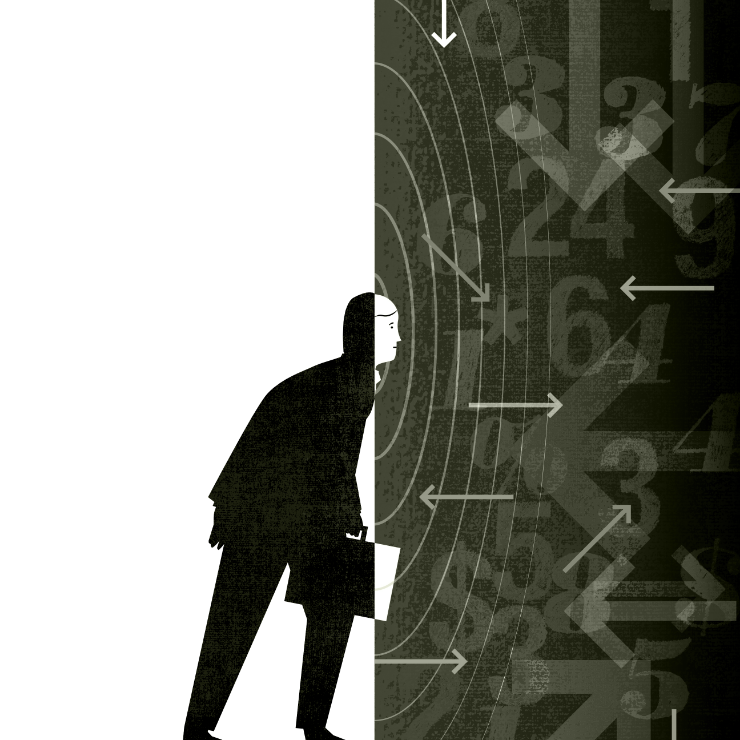Risk management framework—how it works.
Emotion is the driving force behind most of our decisions, beliefs, and judgments. Coupled with fear, it can distract us from the facts, which inevitably leads to poor decisions and less-than-optimal outcomes. But people hate to lose, so when it comes to investing, many individuals choose not to sell when their investments are down. In some instances, fear and the desire to protect what they have inevitably leads to taking on more risk. On the other hand, winning makes people risk-averse, because the fear of loss attaches itself to profits and causes them to sell their investments too soon.
Fortunately, applying risk can be approached strategically. Equipped with a PhD in how to use math and technology to support decision-making in the midst of uncertainty, I help individuals explore a new approach—one that allows them to be confident and risk-savvy, both with their investments and in life. The payoff is that risk-literate individuals are less vulnerable to market volatility. They adopt better, more accurate expectations and a simple concept of the reward to be gained for the risk they take. And they’re on a path to lead a more rewarding, enriched life.
You can be in control.
Think about your reasons for investing. Maybe you want to educate your children, live better in retirement, or leave a legacy, which are all admirable goals. It should not, however, be about getting just one winner in the market. Fortunately, you can learn how to navigate the financial markets on your own. And you can hold your own, without succumbing to the pressures and influences that overwhelm your emotions and divert your attention.
Today, there are pressing questions about the role of digital technology and media and how they affect our lives. We have human sensitivities that are vulnerable to these new technologies. And we live in a time when the digital masters can overwhelm human weaknesses and manipulate our expectations. At the same time that world events and political environments are shaping our future, misuse of technology is negatively affecting our happiness. The goal is to find a way to live with technology so it doesn’t usurp humanity. I believe it begins with teaching people how to dehypnotize themselves, gain control of their own attention, and become risk-literate.
I spent 30 years studying the limits and abuses of technology and the overreliance on quantification, and I’ve seen firsthand how risk illiteracy and the power of the imagination are easily abused. So, while I want people to be able to use technology to help improve their lives, I also want them to understand that technology is merely a tool, much like a hammer. You need the hammer to build the house, but the hammer doesn’t build the house for you.
In the end, I long for a world where human creativity is valued over machine learning. At its best, technology can be used to facilitate real collaboration between people instead of being used to overwhelm human weaknesses.
